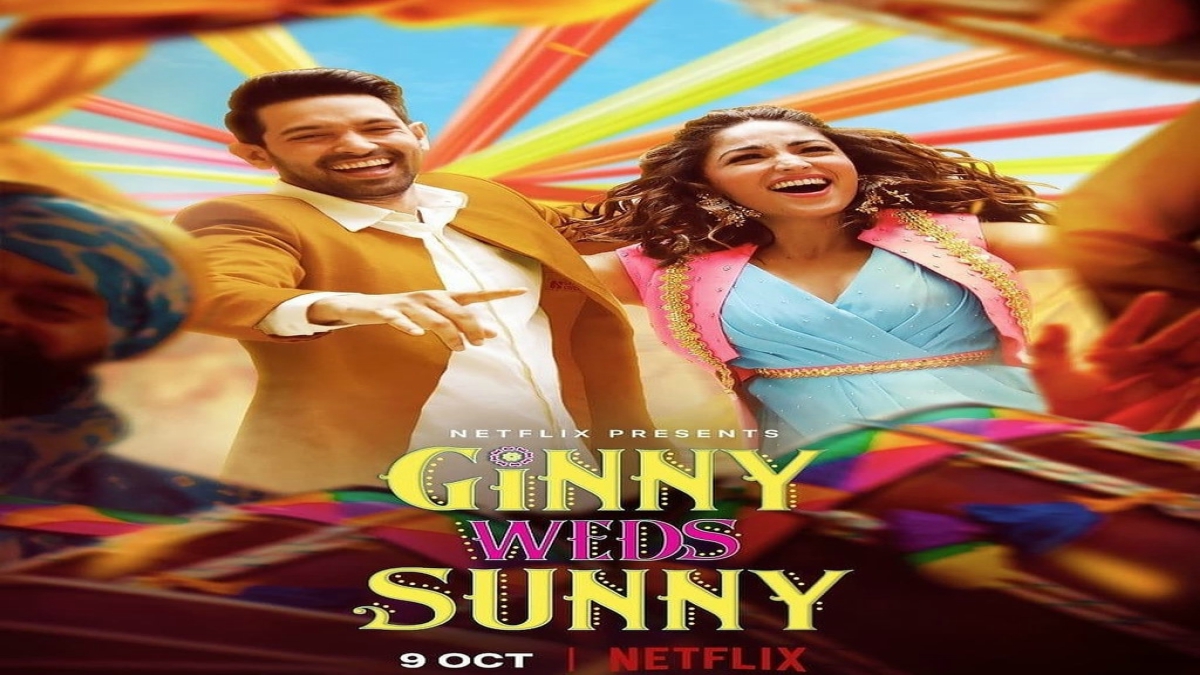


Ginny Weds Sunny, the new Netflix film starring Yami Gautam and Vikrant Massey, endeavours to be kind of cinema that the Indian masses crave for. It’s a time tested formula in a diverse and colourful country like India. It is no secret that we love to celebrate. Festivities are an innate part of our lives. And marriage functions are the grandest of them all. For us, marriage is just not a union of two individuals but it’s an alliance of two families. It’s an occasion that gets everyone excited—be it the children, the young, or the old—for it is perceived as the greatest celebration of life. In short, the marriages are a singularly viable business. For Indian filmmakers, it’s a bankable subject like no other. Some of the biggest commercial hits in the history of Hindi cinema have revolved around the theme of marriage. In order words, the central theme (read marriage) pretty much remains the same; the treatment, however, must vary to ensure that the viewers don’t get bored with it.
Now, if we looked at the Hindi films made over the last 25 years or so we would come across two major blockbusters viz. Hum Aapke Hain Koun…! (1994) and Dilwale Dulhania Le Jayenge (1995), which best exploited the Indian sentimentality for the traditions and rituals associated with marriage. And the trend has continued with films like Hum Dil De Chuke Sanam, Band Baaja Baaraat, Tanu Weds Manu, Shuddh Desi Romance, Tanu Weds Manu Returns, and Veere Di Wedding. In Puneet Khanna’s Ginny Weds Sunny we come across a headstrong middle-class Punjabi girl named Ginny (Yami Gautam) who wants to marry his Haryanvi boyfriend Nishant. But he has a commitment phobia. As a result, Ginny has saved Nishant’s contact in her cellphone’s directory by the name of ‘Confusion’. The makers could have very well chosen it as the film’s title. For, it’s not just the characters who are confused here; the writers and the director appear to be just as confused. The resulting mess can make the viewers so confused that it’s natural to get very frustrated by the time end credits begin to roll.
Ginny Weds Sunny offers a very interesting lead pair in form of Yami Gautam and Vikrant Massey. Now, both actors started their careers with television in the neighbourhood but over the last decade they ended up moving in very different directions. While Yami remained in the mainstream space and mostly played conventional characters, Massey experimented a lot, essaying unconventional characters in films like A Death In The Gunj, Lipstick Under My Burkha, and Chhapaak. The character of Sunny that Massey plays in Ginny Weds Sunny is the most mainstream part that he has done in recent times. There is no denying that intelligent parts suit him a lot but Sunny is certainly not up his alley. Whenever he tries to indulge in buffoonery that the character demands, he looks awkward. Massey is a good actor with decent range but he is no Dilip Kumar or Raj Kapoor and so he gets badly exposed here. Another area where he falters is Sunny’s Punjabi accent which he just can’t get right. The trouble is that he appears to be trying a little too hard. He is at his best when he is not trying too hard such as during the scene when his character tells Ginny that even as a child he knew that she was out of his league. This earnestness when evident works well for Massey.
As for Yami, it’s heartening see her trying hard to break out of her girl next door image. As Ginny, she is temperamental, edgy, demanding, and stubborn. It is one of the most challenging characters that she has essayed in recent times. A few years back she played an even more challenging character in Sarkar 3 but it failed to get her the kind of attention that she deserved. Hopefully, her memorable performance in Ginny Weds Sunny will fetch her more complex roles in the near future. It would be fun to see her essay characters with negative shades such as a femme fatale in a good old suspense thriller.
The best storytellers often emphasise upon the importance of clarity at the narrative as well as the character level. Now, certain motivations drive a character. And certain conflicts drive a narrative. A character once created must have a life of its own. Also, the narrative isn’t supposed to have too many convenient twists and turns because then the narrative may lose its organic quality. Unfortunately, Ginny Weds Sunny suffers from the same problem. It is replete with Bollywood-esque twists and turns with characters repeatedly behaving out of character for the sake of driving the narrative forward. The end result is a confused mess with hardly any novelty. What the theme of marriage in Hindi movies needs is a breath of fresh air. The Indian filmmakers ought to look at films like After the Wedding (2006) and Rachel Getting Married (2008) for some new ideas.